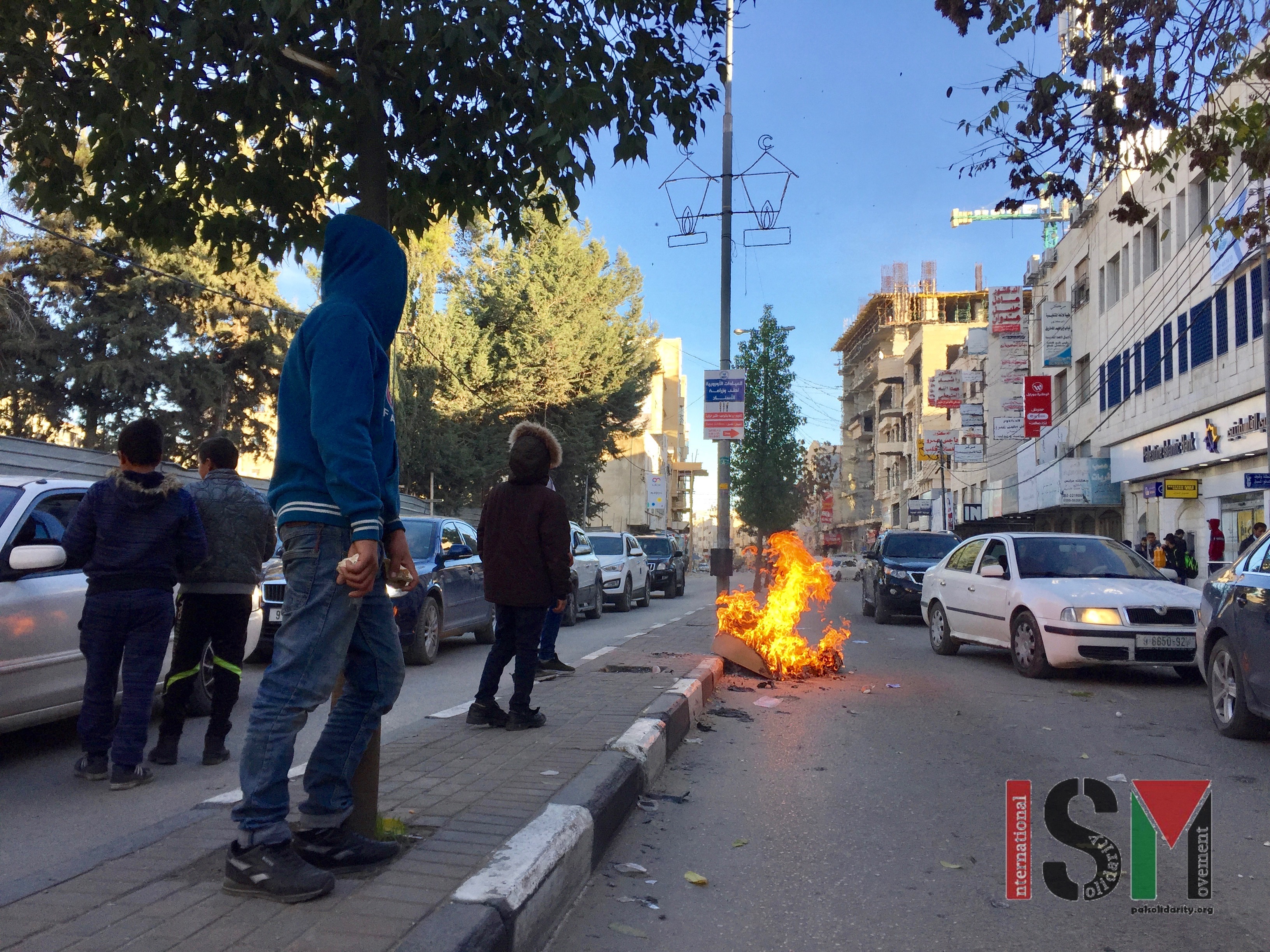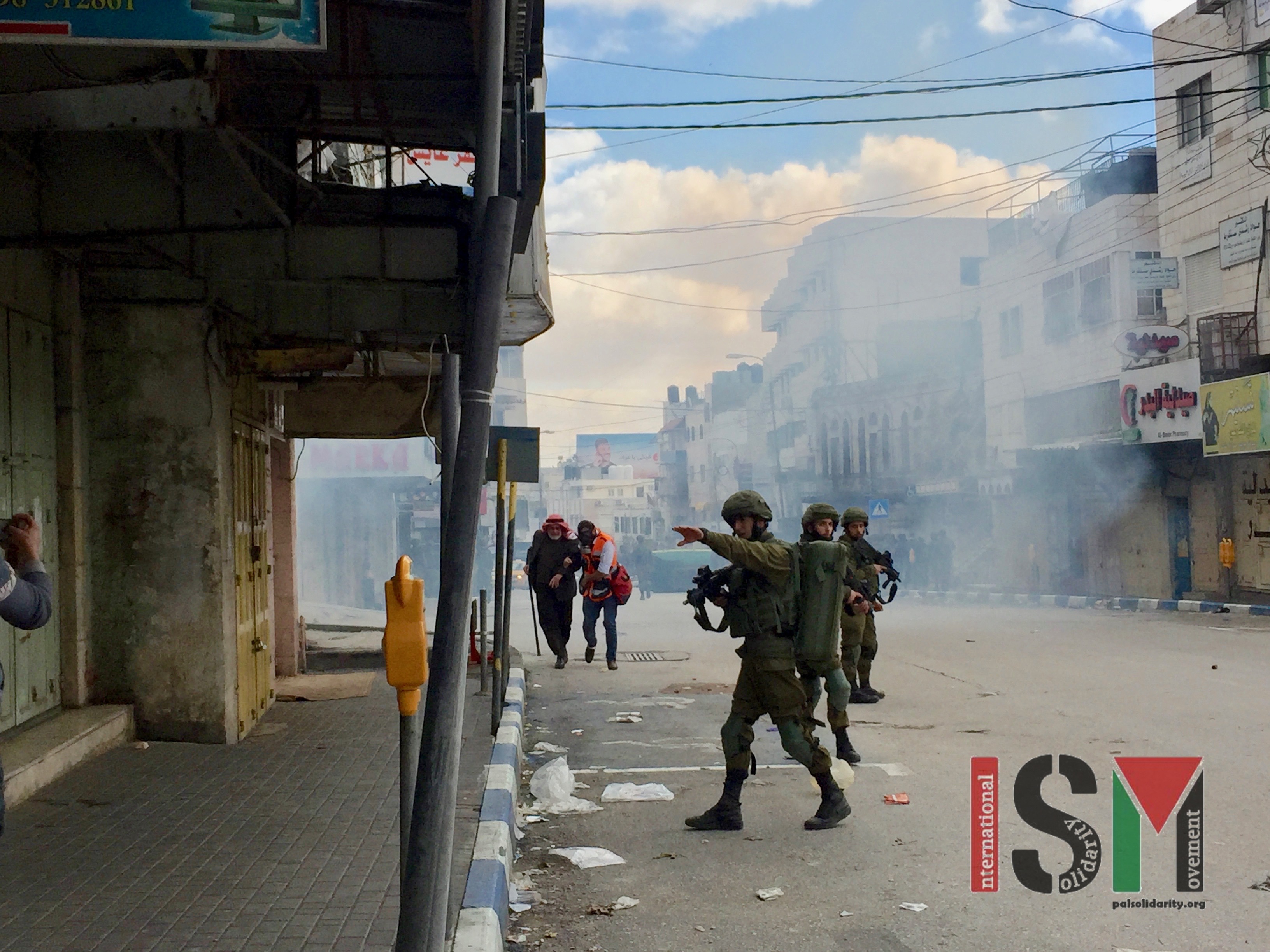Category: Features
-
Israeli Violence Against Civilians, Press Continues Through Weekend in Hebron
9 December 2017 | International Solidarity Movement, al-Khalil team | al-Khalil, Occupied Palestine Clashes continued throughout the weekend in Hebron, after Palestinian civil society groups called for “three days of rage” in response to Donald Trump’s widely unrecognized declaration that Jerusalem is the capital of Israel. Across the West Bank and Gaza, Palestinians organized general…
-
Hundreds of Israeli Soldiers Violently Suppress Demonstration in Hebron
December 2017 | International Solidarity Movement, al-Khalil team | al-Khalil, Occupied Palestine In response to Donald Trump’s declaration of Jerusalem as the capital of Israel hundreds of heavily armed Israeli soldiers invaded the Palestinian controlled areas of Hebron to clash with demonstrators. The clashes were likely also fueled by a general strike of work and…
-
Than you for the donations to free Ashraf Abu Rahmah!
Ashraf was arrested again on the 27th of October 2017 while giving a group of French solidarity activists a tour of the land that his village of Bil’in won back from the nearby Israeli colonial settlement of Modi’in Elite through their creative popular protests. He was accused of throwing stones at the occupation forces, an…



